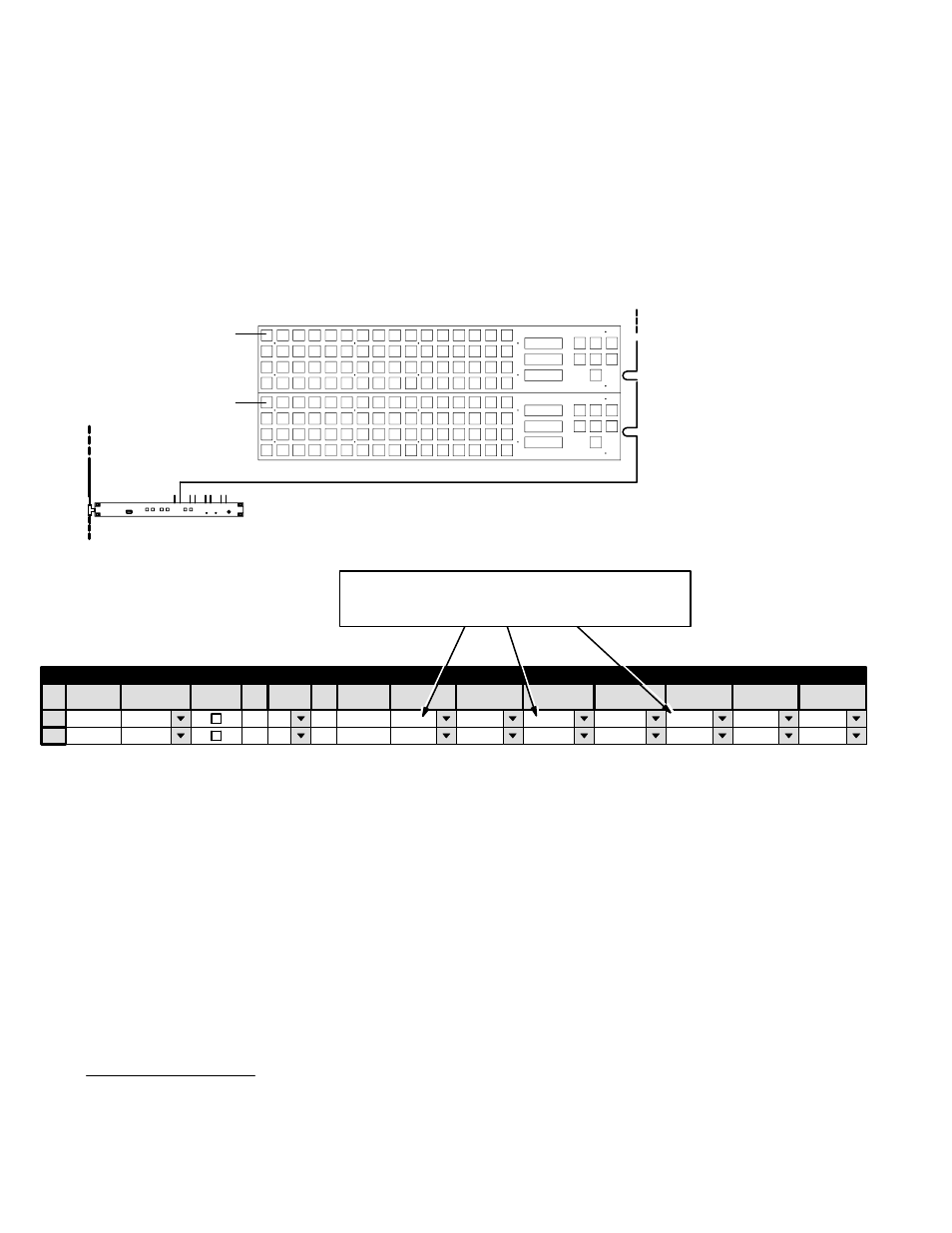Cp 3832 / 3864 multi-panel applications, Cp 3832 / 3864 multi−panel applications, Single−bus application – Grass Valley VM 3000 System Controllers v.7.4 User Manual
Page 342: 128 x 1 control station, Except for unbalanced split, Figure 5−108

Configurator
MPK Devices
5−132
VM 3000 Installation and Operating Manual
CP 3832 / 3864 MULTI−PANEL APPLICATIONS
Except for unbalanced split
§
configurations, CP 3832 and CP 3864 panels can be combined to increase the number of sources
and destinations to a maximum of 128 x 128.
SINGLE−BUS APPLICATION
128 X 1 control station
MPK bus
VM 3000
“VM1”
Main
CP 3864
“CP3864A”
Input button 1
Expansion
CP 3864
“CP3864B”
Input button 65
Figure 5−108.
CP3864A
CP−3864
2
00000043
3832−IN
MON−1
CP3864B
CP−3864
2
00000044
1
MPK Devices
MPK
Expansion
Pass
Board
VM1
Port
Address
Input Sets
Output Sets
Level Set
Overide Set
Sequence Set
2
VM1
KXYZ−LEV
Devices
word
In Panel
Out Panel
Note: Assignment of specific CP sets to a panel
identifies it as the “main” panel, i.e., the panel with
input button number 1.
Figure 5−109. Entry for system shown in Figure 5−108.
CP3864A
Device
Type
In this example, two CP 3864s are being operated as a 128 x 1 control station.
The top CP 3864 has been selected as the “main” panel; therefore it will be assigned to specific CP sets. Enter the name of
the CP Input Set that will be used to assign inputs to all the buttons at this control station (for more information about CP Input
Sets, see page 5−58). In the “Output Sets” column, enter the name of the output to be controlled. The main panel will always
have the lowest−numbered input buttons.
Any panel used to expand the number of inputs (the bottom CP 3864 in this example) will use the “In Panel” column to select
the MPK Device name of the main panel. It would use the CP sets assigned to the main panel. The first expansion panel listed
in this table will have the button numbers immediately following those of the main panel; in this example panel “CP3864B”
will have button numbers 65−128.
§
For a discussion of balanced and unbalanced split configurations, see page 2−63.
